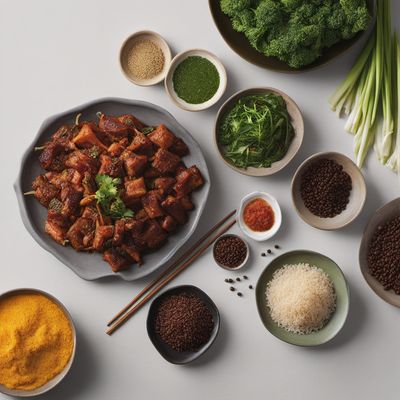
Dish
Babi guling
Suckling Pig
Babi guling is made by roasting a whole suckling pig that has been stuffed with a mixture of herbs and spices, including turmeric, lemongrass, and garlic. The dish is typically served with rice, vegetables, and sambal, a spicy chili sauce. The pork used in the dish is usually sourced from local farms and is of high quality. Babi guling is a staple in Balinese cuisine and is enjoyed by many during special occasions and ceremonies.
Origins and history
Babi guling has been a part of Balinese cuisine for centuries and is a traditional dish that is often served during special occasions and ceremonies. The dish is believed to have originated in the 15th century when the Majapahit Empire ruled over Bali. Today, the dish is still popular and is enjoyed by many during special occasions and ceremonies.
Dietary considerations
Babi guling is not suitable for vegetarians or vegans. It is also not recommended for individuals with pork allergies or those who follow a kosher or halal diet.
Variations
There are many variations of Babi guling, but the most common is the traditional recipe that consists of roasted suckling pig that is stuffed with a mixture of herbs and spices. Some variations include using different herbs and spices or serving the dish with different side dishes.
Presentation and garnishing
Babi guling is typically served on a platter with the roasted suckling pig in the center and the side dishes arranged around it. The dish is often garnished with fresh herbs and spices.
Tips & Tricks
To ensure that the suckling pig is cooked evenly, it is important to turn it over several times during the roasting process. This will help to ensure that the meat is tender and juicy.
Side-dishes
Babi guling is typically served with rice, vegetables, and sambal, a spicy chili sauce. Other side dishes that can be served with the dish include fried noodles, tofu, and tempeh.
Drink pairings
Babi guling pairs well with a variety of drinks, including beer, red wine, and arak, a traditional Balinese liquor.
Delicious Babi guling recipes
More dishes from this category... Browse all »

Afelia
Cypriot cuisine

Apáki
Greek cuisine

Arista
Italian cuisine

Arrosto all'arancia
Italian cuisine

Arrosto di maiale con latte
Italian cuisine

Asado de boda
Mexican cuisine

Babi masak tomat
Indonesian cuisine
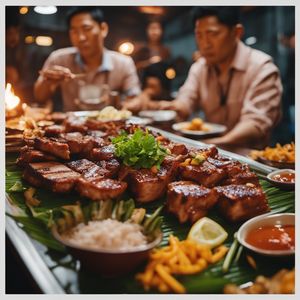
Babi panggang
Indonesian cuisine
More cuisines from this region... Browse all »

Banjar cuisine
Spicy, Flavorful, Savory, Sour
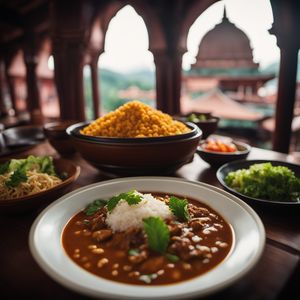
Batak cuisine
Spicy, Flavorful, Savory
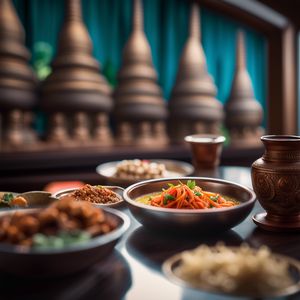
Indo cuisine
Spicy, Sweet, Savory
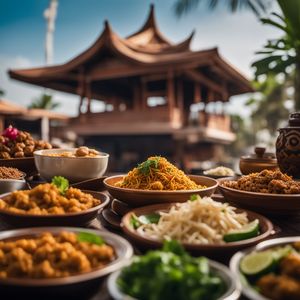
Indonesian Arab cuisine
Spicy, Savory, Sweet
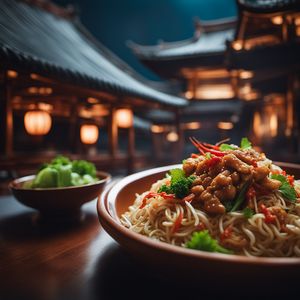
Indonesian Chinese cuisine
Salty, Savory, Spicy, Umami, Sweet

Indonesian Indian cuisine
Spicy, Aromatic, Sweet, Sour
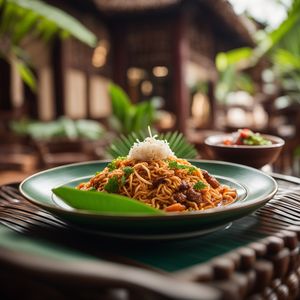
Javanese cuisine
Sweet, Savory, Spicy, Umami
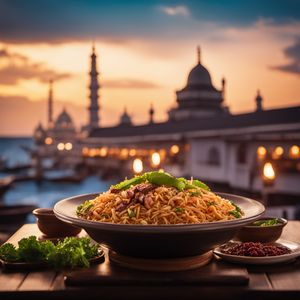
Makassar cuisine
Bold, Spicy, Aromatic, Umami

